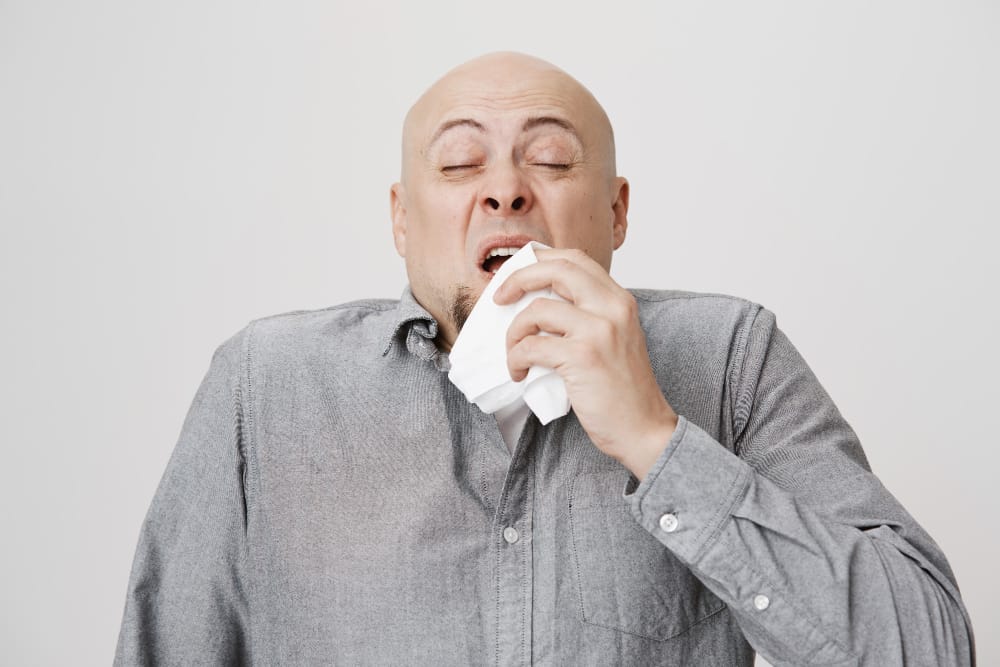How Smoking Weakens Your Immune
System and How Quitting Strengthens It


Written By: Aman Doda
Last Updated: 23/11/2024


- How smoking damages your immune system at a cellular level.
- The impact of smoking on your body’s ability to fight infections and heal.
- The benefits of quitting smoking for immune recovery.
- Realistic steps to rebuild your immune health after quitting.
- Answers to frequently asked questions about smoking and immunity.
- 01: Introduction: Smoking and Your Immune System
- 02: How Smoking Harms the Immune System
- 03: Immediate Effects of Smoking on Immunity
- 04: Long-Term Risks: The Diseases Linked to a Weakened Immune System
- 05: Benefits of Quitting Smoking for Immune Health
- 06: How to Rebuild Your Immune System After Quitting Smoking
- 07: FAQs on Smoking and Immune Health
- 08: Conclusion
Smoking and Your Immune System
When people think about the damage caused by smoking, they usually picture the lungs or heart. But there’s another critical part of your body that suffers greatly—your immune system.
Your immune system is your body’s defense against harmful invaders like bacteria, viruses, and even cancer cells. It works tirelessly to keep you healthy and strong. But smoking disrupts this finely tuned system, making it harder for your body to fight infections, heal wounds, and recover from illnesses.
The good news? Once you quit smoking, your immune system begins to recover, and you can take steps to rebuild it stronger than ever. In this blog, we’ll dive deep into how smoking impacts your immune health and why quitting is one of the best decisions you can make for your body.
Want to understand how smoking affects your entire body? Check out The Hidden Health Costs of Smoking.
How Smoking Harms the Immune System
Smoking introduces over 7,000 harmful chemicals into your body, and these toxins wreak havoc on your immune system. Here’s how:
1.1 Weakening White Blood Cells
White blood cells are the frontline soldiers of your immune system, fighting infections and diseases. Smoking reduces the number of healthy white blood cells and weakens their ability to respond to threats.
1.2 Increased Inflammation
Cigarette smoke triggers chronic inflammation, overloading your immune system. Instead of fighting infections or repairing damaged tissues, your immune system gets stuck in a constant state of overdrive.
1.3 Tissue Damage and Delayed Healing
Smoking damages blood vessels and reduces oxygen supply to tissues, slowing down the healing process. Even small wounds or infections take longer to heal in smokers.
Did You Know? Smoking also slows down your body’s recovery after quitting. Learn how quitting can boost your productivity and overall health in How Quitting Smoking Can Improve Your Daily Life.


1.4 Autoimmune Disorders
Smoking increases the risk of autoimmune diseases, where your immune system mistakenly attacks your own body. Conditions like rheumatoid arthritis, psoriasis, and lupus are more common among smokers.
Immediate Effects of Smoking on Immunity
Even a single cigarette starts affecting your immune system. Here’s what happens:
- Within Minutes: Toxins like carbon monoxide and tar enter your bloodstream, reducing oxygen levels and impairing cell function.
- Within Hours: Inflammation levels spike, and your white blood cells struggle to perform optimally.
Within Days: Smokers are more prone to colds, respiratory infections, and delayed recovery from minor illnesses or injuries.


Related: Understand how smoking affects not just your immune system but also your ability to heal and fight infections in The True Cost of Smoking.
Long-Term Risks: The Diseases Linked to a Weakened Immune System
Over time, smoking leaves your immune system so compromised that you become vulnerable to life-threatening diseases:
3.1 Respiratory Infections
Chronic bronchitis, pneumonia, and recurrent colds are common in smokers due to impaired lung defenses.
3.2 Cancer
Your immune system plays a crucial role in identifying and destroying cancer cells. Smoking weakens this defense, increasing the risk of lung, throat, and even bladder cancer.
3.3 Chronic Conditions
Smoking contributes to diseases like diabetes, cardiovascular disease, and autoimmune disorders—all of which strain your immune system further.
Want to know how smoking impacts your fertility? Check out our post on Smoking and Fertility: Can Quitting Improve Your Chances of Pregnancy?
Benefits of Quitting Smoking for Immune Health
The moment you quit smoking, your immune system begins to heal. Here’s a timeline of what happens:
Within 24 Hours
- Carbon monoxide levels in your blood drop, allowing more oxygen to reach your cells.
- Inflammation begins to decrease.
Within 2 Weeks to 3 Months
- Blood circulation improves, and white blood cells regain strength.
- Your risk of respiratory infections starts to decrease.
Within 1 Year
- The immune system is stronger, making you less prone to illnesses.
- Chronic inflammation levels are significantly lower.
Bonus Tip: To speed up recovery, focus on nutrition, hydration, and exercise.


Key Takeaway: While individual results vary, many women experience improved fertility within a few months of quitting smoking.
How to Rebuild Your Immune System After Quitting Smoking
Quitting smoking is the first step, but you can take additional measures to rebuild your immune health:
5.1 Nutrition
- Antioxidant-Rich Foods: Include berries, leafy greens, and nuts to combat oxidative stress.
- Vitamin C: Citrus fruits, bell peppers, and broccoli help boost immune function.
- Omega-3 Fatty Acids: Salmon, walnuts, and flaxseeds reduce inflammation.
5.2 Stay Active
Regular exercise improves blood circulation, boosts white blood cell activity, and reduces stress hormones.
5.3 Hydration
Drink plenty of water to flush out toxins and keep your immune system functioning optimally.
5.4 Adequate Sleep
Aim for 7-9 hours of sleep per night. Sleep is critical for repairing cells and producing immune proteins.
5.5 Stress Management
High stress levels weaken immunity. Practice yoga, meditation, or breathing exercises to stay calm


Key Takeaway: A healthy lifestyle that includes balanced nutrition, regular exercise, and stress management can further boost fertility after quitting smoking.
FAQs on Smoking and Immune Health
While some damage may be permanent, quitting smoking allows your immune system to recover significantly over time, reducing your risk of infections and chronic disease
Initial improvements happen within weeks, but full recovery may take months to years, depending on the extent of the damage
No. Vaping still introduces harmful chemicals into the body and affects immune function, albeit differently than traditional cigarettes
Yes, supplements like vitamin C, zinc, and omega-3s can help, but it’s best to focus on a nutrient-rich diet for long-term benefits.
Strengthen Your Immune System, Reclaim Your Health
Smoking doesn’t just harm your lungs or heart—it undermines your body’s ability to defend itself against infections and diseases. The good news? Quitting smoking is like hitting the reset button for your immune system. With time and the right lifestyle changes, you can rebuild your defenses and live a healthier, more resilient life.
If you’re ready to take the first step, download our free Quit Smoking eBook to learn how QSFS (Quit Smoking Freedom System) can help you quit for good. Or join our upcoming masterclass to see how you can reclaim your health and transform your life today.
Share via:
